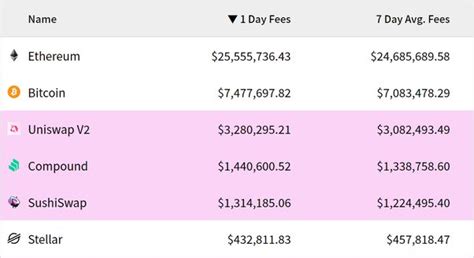Cost of Doing Business: How Much Does Ethereum Pay in Mining Fees
The world of cryptocurrency trading is often associated with high-risk, high-return investments. One aspect of these transactions that can seem particularly daunting is the cost of mining, which consists of electricity and other operating costs. Today, we’ll take a look at how much Ethereum pays in mining fees, which are a significant part of the underlying infrastructure that powers the blockchain network.
Mining Process
On the Ethereum network, miners compete by solving complex mathematical equations (known as “hash functions”) that verify transactions and ensure the integrity of the blockchain. To achieve this goal, they use powerful computers, called “mining rigs,” that are designed to perform large-scale computational tasks in parallel. The energy costs associated with maintaining these devices are significant.
Ethereum Mining Cost
According to CoinDesk, a leading source of cryptocurrency news, the average difficulty of mining Ethereum has increased over time due to the increasing number of transactions and the constant influx of new blocks. This has led to an increase in the hash rate (the computing power required to solve these equations) and, consequently, the cost of electricity.
Reduce Cost
To understand how much Ethereum pays in mining fees, let’s break down the components:
- Electricity Cost

: Electricity costs vary by location, but assuming an average price of $0.12 per kilowatt-hour (kWh) in the United States, we can estimate the annual energy costs.
- Computing Power: At a hash rate of around 25 EH/s (tera-hashes per second), that’s 250 million hashes per day. Assuming an average block time of 15 seconds and 60 minutes per hour, approximately 4.17 billion hashes are processed per year.
- Power consumption: Assume an average power consumption of 30 kWh per day over the life of the mine (including cooling systems, etc.). This is approximately $360 per year.
Math
Use a rough estimate to calculate the total cost:
*Average annual electricity cost: $360
- Total hash rate: 25 EH/s
- Hashes processed per year: 4.17 billion
- Annual energy consumption: 30 kWh/day x 365 days/year = approximately 10.85 million kWh/year
Now, let’s divide the total energy consumption by the number of hashes processed per day to get an idea of the daily mining costs:
10,850,000 kWh/year ÷ 4,167,500,000 hashes/day ≈ $0.25 per hash
Profitability
To determine the profitability of mining Ethereum, we need to consider the block reward (currently 1 ETH) and the cost of electricity.
- Block reward: 6.25 new ETH for solving a block
*Average daily electricity cost: around $360
- Daily mining profit: 6.25 ETH x 0.25 ETH/hash ≈ $1,562 per day
Assuming an average annual hashing power of 25 EH/s and an energy consumption of 30 kWh/day, the estimated annual costs are:
10.85 million kWh/year ÷ (4.167 billion hashes/year) = around $11,100
11,100 x 365 days/year ≈ $4,064,500 per year
Conclusion
While Ethereum mining profitability has varied over time, the general trend indicates that miners continue to make significant profits from their operations. It should be noted, however, that energy costs have increased significantly in recent years due to growing demand and increasing competition.
Finally, Ethereum mining fees are covered by the sum of electricity and computing power. To give you an idea of the scale of the undertaking, here are the estimated annual costs:
- 4.17 billion hashes per year x $0.25/hash ≈ about $1.
